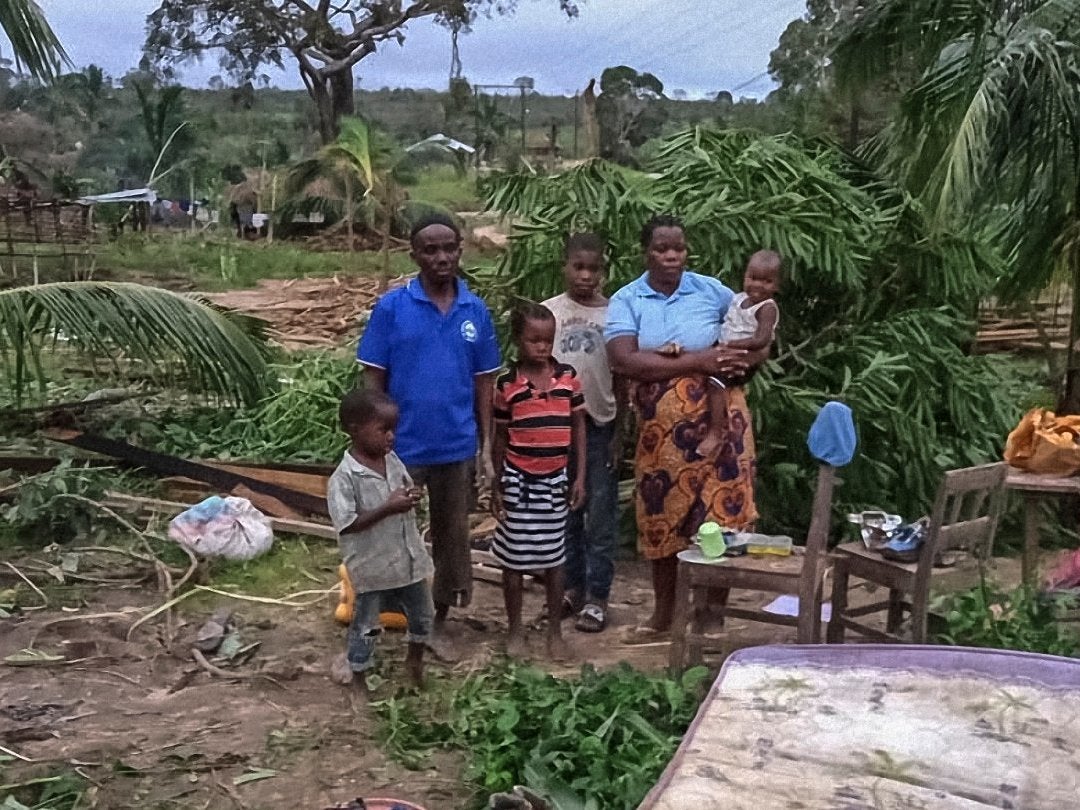Mozambique: Hundreds of thousands threatened by fresh floods and mudslides as Cyclone Kenneth bears down on east African nation
At least five killed in country still reeling from disaster last month

Your support helps us to tell the story
From reproductive rights to climate change to Big Tech, The Independent is on the ground when the story is developing. Whether it's investigating the financials of Elon Musk's pro-Trump PAC or producing our latest documentary, 'The A Word', which shines a light on the American women fighting for reproductive rights, we know how important it is to parse out the facts from the messaging.
At such a critical moment in US history, we need reporters on the ground. Your donation allows us to keep sending journalists to speak to both sides of the story.
The Independent is trusted by Americans across the entire political spectrum. And unlike many other quality news outlets, we choose not to lock Americans out of our reporting and analysis with paywalls. We believe quality journalism should be available to everyone, paid for by those who can afford it.
Your support makes all the difference.Hundreds of thousands of people are at risk from fresh flooding and mudslides forecast in Mozambique, which is still reeling from a cyclone last month that killed at least 1,000 people.
The east-African nation's government has urged people to move to higher ground as the most powerful storm to ever strike the country’s northern coast prompted fears that rivers would burst their banks.
Thousands of homes have already been wrecked and at least five people killed by Cyclone Kenneth, which has pounded the region with rain.
As further downpours were forecast over the coming days, aid officials said 700,000 people could be at risk, many left homeless and hungry as waters rise.
Mozambique’s weather authority said the storm could potentially move back out to sea and intensify again, bringing a risk of floods. “It doesn’t look good, quite honestly,” said Nicholas Finney, of the Save the Children charity.
Government officials warned those living in the northern Cabo Delgado province that the region’s two rivers could spill over.
Nearly 3,500 homes were partially or fully destroyed, with electricity cut, some roads blocked and at least one key bridge collapsed. Some schools and health centres were damaged in 140mph winds.
Terrified children and traumatised parents “face a huge task to start to rebuild”, Mr Finney said.
Cyclone Kenneth slammed into Mozambique just six weeks after Cyclone Idai, which levelled the more central port city of Beira before bringing deadly floods that submerged villages and vast stretches of land.
Idai killed at least 1,000 people across Mozambique, Zimbabwe and Malawi, and left an estimated 1.85 million people in Mozambique in need.
This is the first time the southern African nation – one of the world’s poorest countries – has been hit by two cyclones in one season, raising concerns about climate change.
The World Food Programme warned that Kenneth could in the coming days dump twice as much rain on northern Mozambique as Idai did.
“The situation wasn’t worse thanks to awareness-raising work by local authorities,” Mozambique’s disaster management agency said as it posted photos of buildings where metal roofs had been crumpled or ripped away.
Other photos showed a mud-walled home that had disintegrated, a bus that appeared to have slid off the road and a toppled electrical pole.
People left homeless tried to patch together shelters from the rain.
The death toll from Kenneth, which stood at three earlier this week, rose to five when two more people were killed, according to the United Nations Office for the Coordination of Humanitarian Affairs.
Agencies contributed to this report.
Join our commenting forum
Join thought-provoking conversations, follow other Independent readers and see their replies
Comments